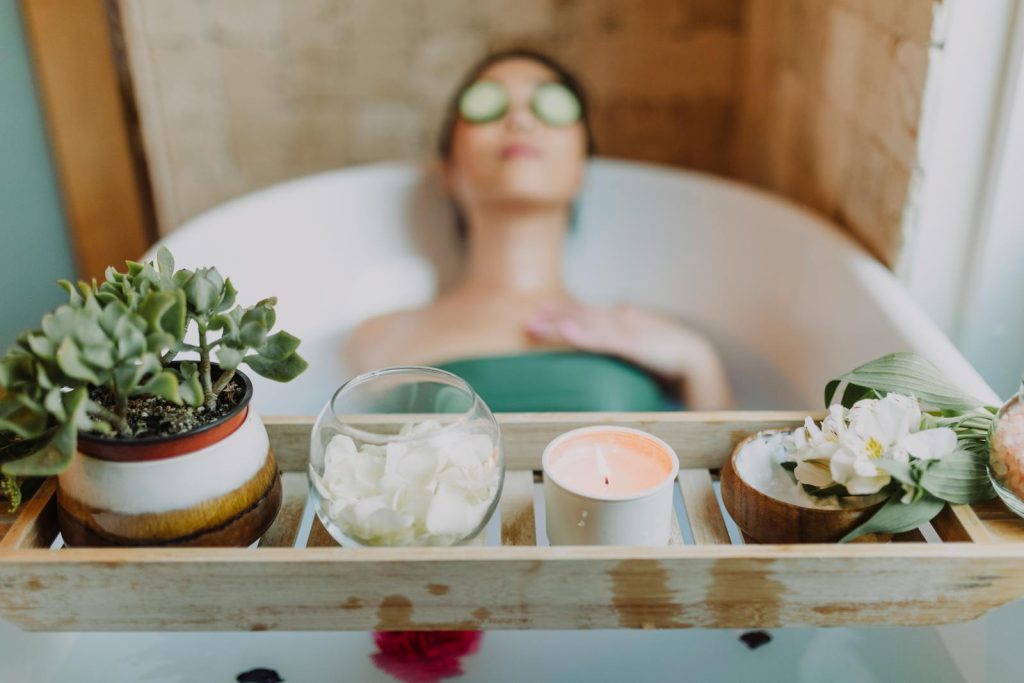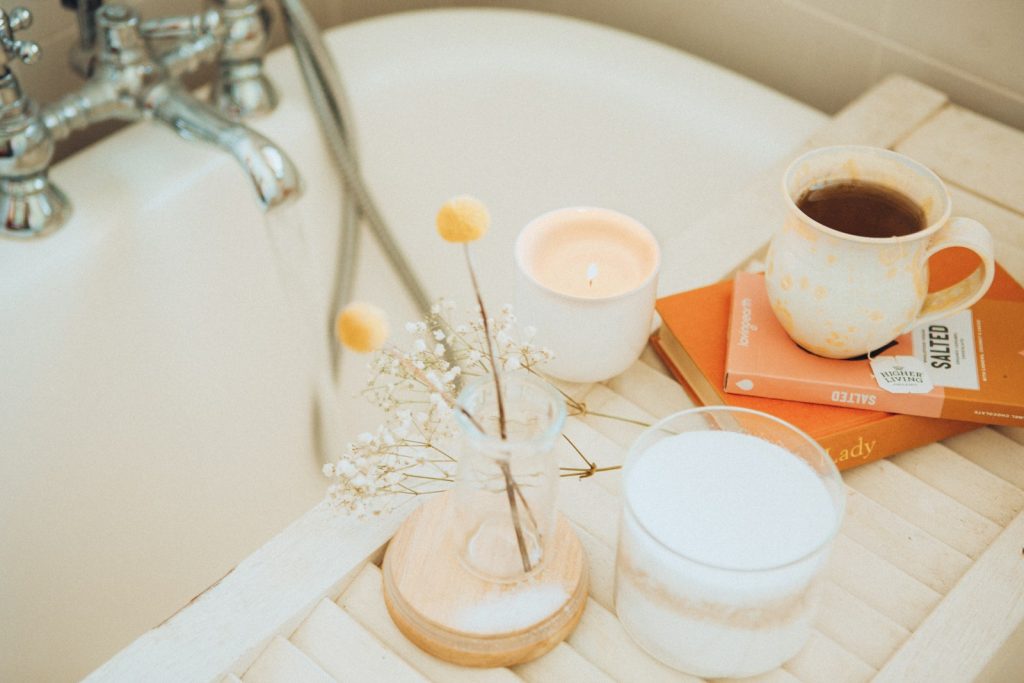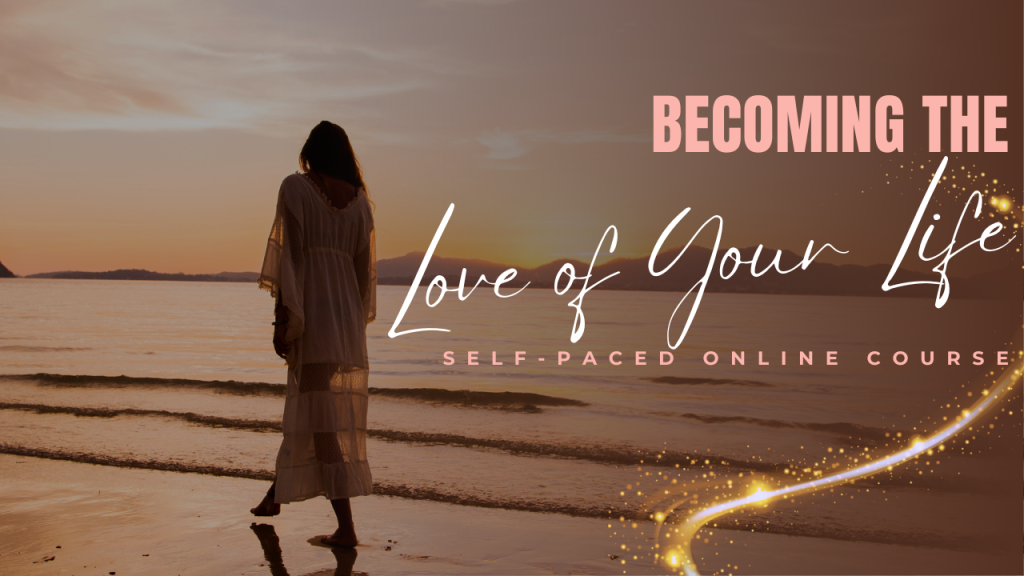Is Your Self-Care Routine Helping—Or Just Keeping You Busy?

If you’ve ever rolled your eyes at the suggestion to “just practice gratitude” when you’re overwhelmed, you’re not alone. There’s no shortage of self-care ideas for women out there—just scroll Instagram or browse the wellness aisle at Target. We’re told to journal, hydrate, go to yoga, eat clean, unplug, exfoliate, meditate…
And sure, some of those things can be helpful. But if your self-care routine leaves you feeling like you’re failing at one more thing, something’s not working.
Self-care is supposed to support you, not stress you out.
But for so many high-achieving women, it becomes another performance, another thing to prioritize. Another thing we do to earn rest. Or earn peace. Or earn the feeling of being good enough.
I say this with zero judgment—because I’ve done it too.
There was a time in my life when I thought if I just pushed a little harder—finished the to-do list, hit the next goal, proved myself one more time—I’d finally feel worthy. I’d finally feel seen. And for a long time, I approached self-care the same way. I turned it into another task on the list. Another attempt to “fix” myself.
But that’s not what real self-care is about.
Real self-care is about building a relationship with yourself.
It’s not about doing more. It’s about connecting with yourself more. It’s about noticing more—what you feel, what you need, and what actually supports you.
In this post, I’ll share self-care ideas from my own experiences, as well as research-backed ideas that actually help you feel more connected—without piling on more pressure.
Quick Answer: What Are the Best Self Care Ideas for Women?
The best self-care routines aren’t just tasks on a list—they’re ways of connecting with yourself. It’s less about what you do and more about how it supports you. True self-care helps you feel a little more connected, more supported, and more like yourself again.
Whether it’s journaling, moving your body, setting boundaries, or simply taking a breath to reduce stress—you’ll know it’s working if you feel even a small shift toward inner support and attunement.
What we’ll cover in this guide:
Why so many self-care routines don’t actually feel helpful
Why physical, emotional, and social health all matter
Meaningful self care ideas for women, backed by research and lived experience
How to tell if your self-care is working (even if your problems haven’t disappeared)
A podcast episode that explores this topic in more depth
The most important part of self-care: the relationship you build with yourself
Why So Many Self-Care Routines Don’t Actually Feel Helpful

You’ve probably seen the “ultimate self-care checklist” floating around the internet—suggestions like taking a bubble bath, going for a walk, journaling, lighting a candle, or drinking more water.
And while these things can be beautiful if they’re what you actually need, they often turn into just another to-do list. Another way we try to “fix” ourselves. Another task we should do to feel better or reduce stress—without ever stopping to ask:
Is this actually helping me? Do I feel more supported, more grounded, more connected to myself afterward—or just more drained?
We live in a world where even wellbeing has become performative. It’s something to post about. Something that looks good on the outside. But self-help isn’t about looking healed—it’s about feeling supported, even if things are still messy.
That’s why so many routines don’t land. They’re missing you—your voice, your truth, your internal cues. And if we’re honest, a lot of us were never taught how to check in with ourselves. We were taught to achieve, to perform, to push through. So even when we try to care for ourselves, we carry that same hustle energy into it.
I’ve lived this.
There was a time in my life when I truly believed that if I just did enough—if I nailed the morning routine, if I meditated daily, if I exercised, journaled, and crushed it at work—I’d finally feel good enough.
I was chasing peace through performance.
But it never worked… because peace doesn’t come from doing all the “right” things. It comes from building a relationship with yourself.
That’s the shift. Self-care isn’t about completing tasks—it’s about asking:
👉 What do I need today?
👉 What would feel truly supportive right now?
👉 Am I doing this because it helps—or because I think I should?
Building a relationship with yourself is at the core of meaningful healing. And it’s not something you figure out overnight. It’s something you practice—with honesty, with compassion, and with flexibility.
Just like it takes time to build a meaningful relationship with someone else, it also takes time to build a meaningful relationship with yourself.
So here’s your permission slip:
You don’t need to practice self-care perfectly.
You don’t even need to do the same thing every day.
You just need to start checking in and treating yourself like someone worth caring for.
Self-care isn’t supposed to feel like pressure. It’s supposed to feel like support.
I talk more about this concept—especially how to tell if your self-care is actually working—in my UNWIND podcast episode on performative self-care and building a relationship with yourself.
The Importance of Physical, Emotional, and Social Health

Real self-care doesn’t just happen in a vacuum—it lives in the overlap between your body, your emotions, and your relationships.
And if you’ve ever tried to “self-care” your way out of burnout with a bubble bath while ignoring your exhaustion, loneliness, or overbooked calendar… you know this truth:
You can’t support yourself well if you’re disconnected from your actual needs.
Let’s break it down:
Mental & Emotional Health
This is the foundation of meaningful self-care. Mental health includes how you relate to your thoughts, how you process your emotions, and how safe it feels to simply be with yourself.
Many of us never learned that emotional health isn’t just about “staying positive”—it’s about being present with whatever’s true, without judgment. That might mean crying when you need to, naming your resentment or guilt, or offering compassion to the anxious part of you that wants to control everything.
In my self-paced coaching program, building this kind of internal safety is at the core of everything we do—because without it, all the surface-level habits in the world won’t lead to real change.
Physical Health
Caring for your body doesn’t mean punishing it. It means honoring your energy levels, getting enough sleep, moving in ways that feel good, nourishing yourself, and listening to your body’s cues.
This might look like gentle stretching instead of a high-intensity workout. Or skipping a 5am wakeup to get the sleep you desperately need.
You don’t have to follow someone else’s version of “wellness.”
You just need to start asking: What helps me feel more supported in my body today?
Social Health
Even the best solo self-care practices can fall flat when we’re disconnected from others. Humans are wired for connection. Social self-care doesn’t mean constantly being “on” or people-pleasing—it means nurturing relationships where you feel safe, seen, and supported.
That might look like making time to text a friend when you’re feeling low, setting boundaries with someone who drains your energy, or making space for a weekly phone call that lights you up.
We thrive in relationships where we can be our full selves.
And sometimes, part of self-care is admitting that you’re lonely—and letting someone in.
Best Self Care Ideas for Women (That Help You Connect With You)

You may have noticed this list looks a little different than the typical “20 self-care ideas for women” floating around the internet. That’s on purpose.
Because self-care isn’t about what you do—it’s about how it supports you.
So instead of giving you another checklist to complete, I want to invite you into something deeper: A relationship with yourself.
When you build that relationship, you’ll start to know what you need—without second-guessing. (And yes, sometimes that will be a damn bubble bath, lol.)
So let’s throw out the rigid rules and start with one simple practice:
Check in with yourself. Ask:
👉 What do I need right now?
👉 What would help me feel supported—even just a little bit?
If you don’t know yet, or if those questions feel overwhelming, that’s okay. It takes time. Start here:
Mindfulness & Stillness
Press pause—just for a few minutes.Sit quietly. Take a few deep breaths. Notice what’s going on inside without trying to fix it.
You can also try a short guided meditation to regulate your nervous system and bring you back into the present.
Journaling (Freestyle or With Prompts)
Let your thoughts flow freely onto the page—or use a few gentle prompts like:
What’s really on my mind right now?
What part of me needs support today?
If I could give myself one thing today, what would it be?
You might be surprised by the answers that come through when you listen.
Intuitive Movement
Don’t overthink it. Just move in a way that feels natural. Hug yourself. Stretch your arms. Roll your shoulders. Dance.
Let your body do what it wants to do. Movement helps process stuck energy and reconnect with your inner world.
Do Something Creative
Draw. Paint. Collage. Cook. Rearrange your bookshelf.
You don’t have to be “good” at it. Creativity activates a different part of your brain—and it’s one of the quickest ways to shift out of problem-solving mode and back into presence.
Say No to What Feels Off
Protecting your energy is self-care. If something drains you, stresses you out, or just doesn’t feel right… you don’t have to say yes. Practice setting one small boundary this week.
Notice When Something Feels Good
This is a big one.When you do something that feels nourishing—pause and let yourself actually feel it.
Even just 10–20 seconds of noticing peace or relief helps rewire your brain to recognize safety and connection. That’s not just a cute idea—it’s neuroscience.
In my coaching program, building a strong relationship with yourself is at the core of everything we do. Because when you learn to support and trust yourself, your self-care becomes intuitive. Natural. Sustainable.
You stop chasing the “right” routine—and start becoming the right support system for you.
How Do You Know if Your Self-Care Is Actually Working?

Here’s a hint: it’s not about whether your problems have magically disappeared. That’s not the job of self-care.
The real question is: do you feel even a little more grounded, connected, or supported afterward?
Not fixed. Not perfect. Just a bit more like yourself. A little bit more capable of facing what life throws your way.
Ask yourself:
Do I feel more supported—by me?
Do I feel more present in my body, even 5–10%?
Do I feel more clarity or softness inside?
Am I acting from intention, not autopilot?
Those are signs that your self-care is doing its job. You don’t have to feel amazing afterward. In fact, self-care isn’t always “feel-good” in the moment—sometimes it’s saying no, sitting with hard feelings, or giving yourself permission to rest when it feels unfamiliar or even scary.
But if you feel more connected to yourself—even slightly—it’s working.
That’s the difference between performative self-care and real self-support.
It’s not about escaping your life.
It’s about building the inner capacity to live it.
The Most Important Part of Mental Health and Well-being Is the Relationship You Build With Yourself

You don’t need another perfect morning routine.
You need to feel seen, heard, and supported—by you.
When self-care becomes a way to connect with yourself instead of a task to complete, everything shifts.
And if you want help building that kind of relationship with yourself, that’s exactly what we do in my self-paced coaching program.
Whether you’re working on healing anxious attachment or breaking free from overwork and self-doubt, we’ll do it from a place of self-compassion, nervous system safety, and actual support.
Want to Go Deeper? Listen to This Podcast Episode
If this post hit home for you, I recorded a full podcast episode that goes even deeper into this topic:
Is Your Self-Care Routine Actually Helping—Or Just Keeping You Busy?
In the episode, I talk about:
Why “performative” self-care leaves us empty
How going to therapy for 7 hours a week burned me out, and kept me stuck.
And how to build a routine that truly supports you—not just another thing to check off
It’s about 15 minutes long, and it might be exactly what you need to rethink the way you take care of yourself!





